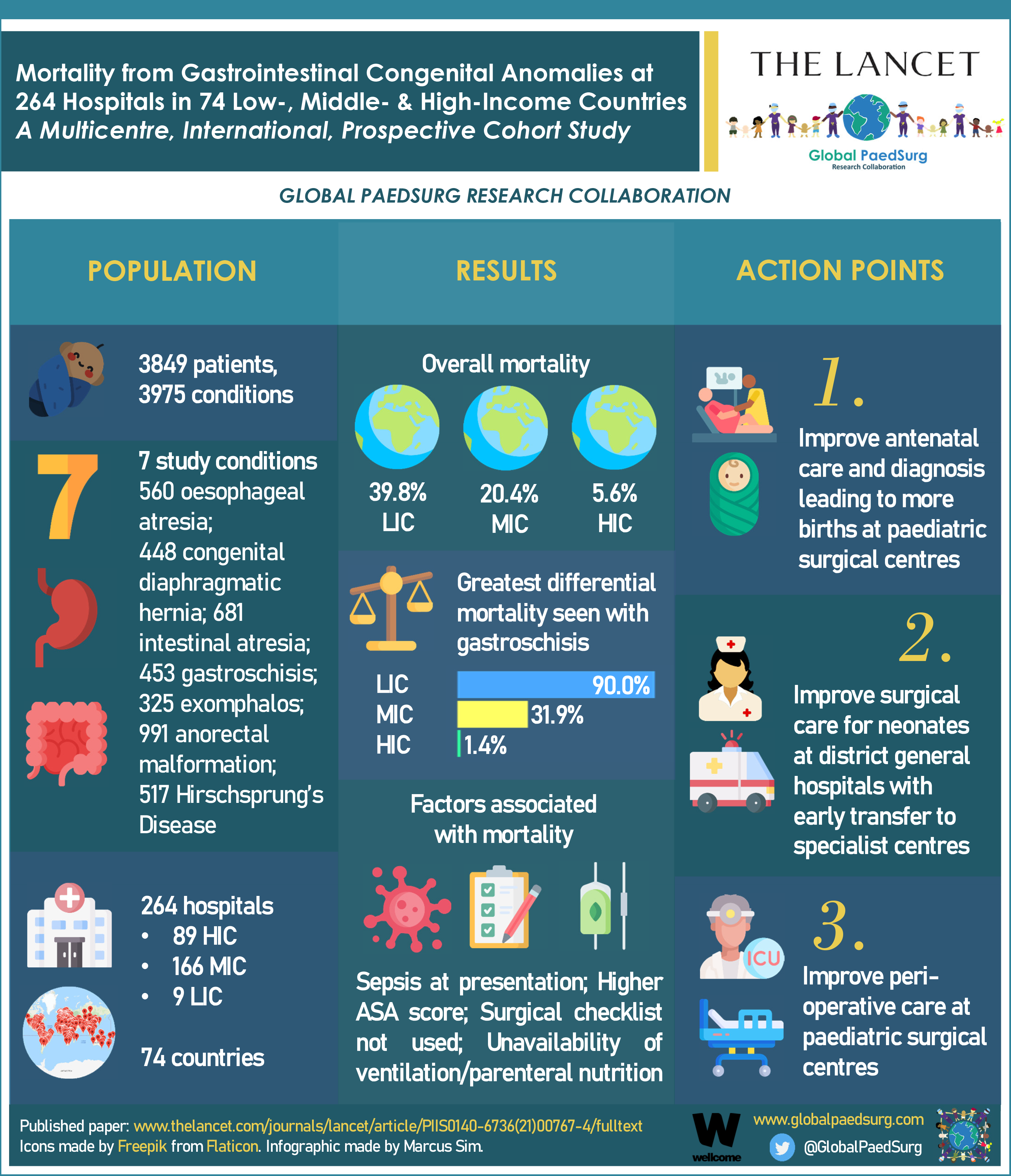
Breadcrumb
- News and Events
- News
- Content
- RI-MUHC researchers contribute to global study of babies born with birth defects
null RI-MUHC researchers contribute to global study of babies born with birth defects
A new study published in The Lancet finds that survival for babies born with a birth defect – otherwise known as a congenital anomaly – is dependent on where they are born
Source: Global Paediatric Research Collaboration, King’s College London, and RI-MUHC.
A study published this month in The Lancet examined the risk of mortality for nearly 4,000 babies born with birth defects in 264 hospitals around the world. The study found babies born with birth defects involving the intestinal tract have a two in five chance of dying in a low-income country compared to one in five in a middle-income country and one in twenty in a high-income country.
Gastroschisis, a birth defect where the baby is born with intestines protruding through a hole by the umbilicus, has the greatest difference in mortality, with 90% of babies dying in low-income countries compared with 1% in high-income countries. In high-income countries, most of these babies will be able to live a full life without disability.

The study was conducted by the Global Paediatric Research Collaboration, a multicentre research collaboration of surgeons, anaesthetists and allied health professionals caring for neonates and children requiring surgery across the globe. Dan Poenaru, MD, PhD, an investigator in the Child Health and Human Development Program (CHHD) at the Research Institute of the McGill University Health Centre (RI-MUHC), is a member of the steering committee for this global research group and one of the authors of the publication. Other RI-MUHC contributors are Sherif Emil, MD, also an investigator in the CHHD program, and Pramod Puligandla, MD, an associate investigator in the Translational Research in Respiratory Diseases Program. The Montreal Children’s Hospital contributors include Eileen Duggan, Elena Guadagno, Jean-Martin Laberge, Nadia Safa, Kenneth Shaw, Etienne St-Louis and Hussein Wissanji.
“To address the current scarcity of research on congenital anomalies, particularly from low- and middle-income countries, we have completed the first large series, geographically comprehensive multicentre prospective cohort study of congenital anomalies across the globe,” says Dr. Poenaru. “Such data is vital to inform advocacy efforts and global health prioritization.”
The team of researchers stresses the need for a focus on improving surgical care for newborns in low- and middle-income countries globally. Over the last 25 years, while there has been great success in reducing deaths in children under five years by preventing and treating infectious diseases, there has been little focus on improving surgical care for babies and children, and indeed, the proportion of deaths related to surgical diseases continues to rise. Birth defects are now the fifth leading cause of death in children under five years of age globally, with most deaths occurring in the newborn period.
The researchers found that improving survival from these conditions in low- and middle-income countries involves three key elements:
- improving antenatal diagnosis and delivery at a hospital with children’s surgical care,
- improving surgical care for babies born in district hospitals, with safe and quick transfer to the children’s surgical centre,
- improved perioperative care for babies at the children’s surgical centre.
They acknowledge that this requires strong teamwork and planning between midwifery and obstetric teams, newborn and paediatric teams, and children’s surgical teams at the children’s surgical centre, alongside outreach education and networking with referring hospitals.
The researchers urge that alongside local initiatives, surgical care for newborns and children needs to be integrated into national and international child health policy and should no longer be neglected in the context of global child health.

About the study:
Read the publication in The Lancet
July 28, 2021